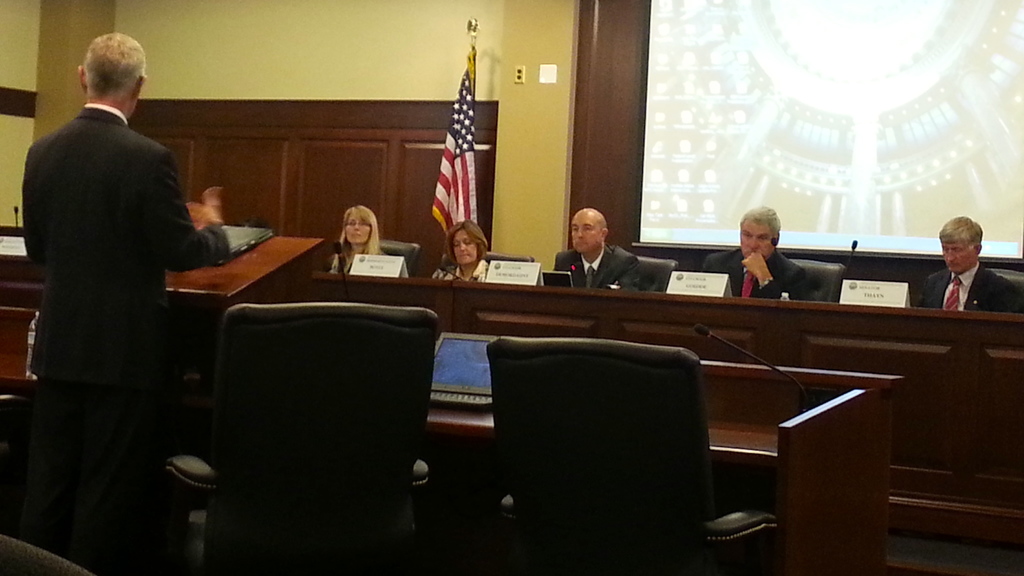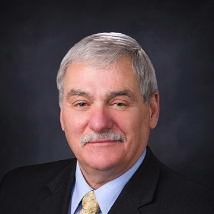On Wednesday, the Legislature’s K-12 interim committee turned its attention to a highly anticipated discussion of the most talked about labor laws enacted this year.

After reviewing data from this year’s negotiating sessions, committee members found that education stakeholders’ positions on the labor laws have not changed.
The discussion was significant because Gov. Butch Otter’s Task Force for Improving Education declined to review the labor bills, clearing the way for the interim committee to take up the subject before the laws are revisited during the 2014 legislative session.
The three laws up for discussion included:
- House Bill 261, which states seniority cannot be the only factor considered when district officials impose a reduction in force.
- Senate Bill 1040, which gives school boards the authority to reduce teachers’ pay or contract days – or increase them.
- Senate Bill 1147, which requires master agreements generally be limited to one year in duration.
The 10 members of the interim committee called on officials from the Idaho Education Association, Idaho School Boards Association and Idaho Association of School Administrators to give them a progress report on the new laws.
All groups voiced support for HB 261, although IEA leadership preferred small changes.
Meanwhile, IASA and ISBA officials continued to support the other two labor bills, while IEA leaders asked for those laws to expire or only be reauthorized on a conditional basis subject to additional data collection.
IASA executive director Rob Winslow said that the laws give school administrators and trustees power to control their finances in a turbulent economic climate.
“These bills allow flexibility,” Winslow said. “(Reductions in force) and reducing salaries is not something superintendents and school board enjoy doing.”
ISBA leaders shared data showing that only five of the 78 school districts that responded to a survey question imposed a reduction in force this year.
“(These laws) are used only when absolutely necessary,” ISBA executive director Karen Echeverria said.

But IEA president Penni Cyr and attorney Paul Stark said the laws shift too much power to school boards and amount to the state dictating the terms of negotiations.
“(Senate Bill 1147) robs local school districts of local control by forbidding them from deviating from what they can bargain,” Cyr said.
IEA officials also asked whether leaders from the Mackay School District – who originally championed the laws’ passage – were in as desperate of financial circumstances as they suggested in making the case for the laws. Mackay Superintendent Karen Pylon told lawmakers in March that teachers pledged to cut their salaries in order to cut $150,000 from the budget and avoid a financial disaster. Without the law in place, Mackay would have no authority to cut teachers’ salaries, Pylon said at the time.
But Stark testified Mackay officials were able to more than double the district’s financial reserves between 2008 and 2012 – from about $430,000 to $985,000. That led Sens. John Goedde, R-Coeur d’Alene and Branden Durst, D-Boise, to ask questions about the district’s financial situation and seek more information.
In the end, the interim committee’s two co-chairs, Goedde and House Education Committee Chairman Reed DeMordaunt, stressed the importance of stakeholder collaboration and additional study of the new laws.

“I’ve got to applaud the IEA, ISBA and IASA for being willing to sit down at the table last year (to negotiate the substance of the laws),” Goedde said. “What came before us in the Legislature was better than what we started with and we have the opportunity to do that again.”
In other action Wednesday, interim committee members explored the topics of school safety, the Smarter Balanced Assessment Consortium program and tests and school facilities.
As was the case when the interim committee met for the first time Sept. 12, members heard from a wide variety of officials and education experts, but took no formal action.
The committee is expected to meet again on Nov. 5 at the statehouse and is considering scheduling a December meeting as well.
